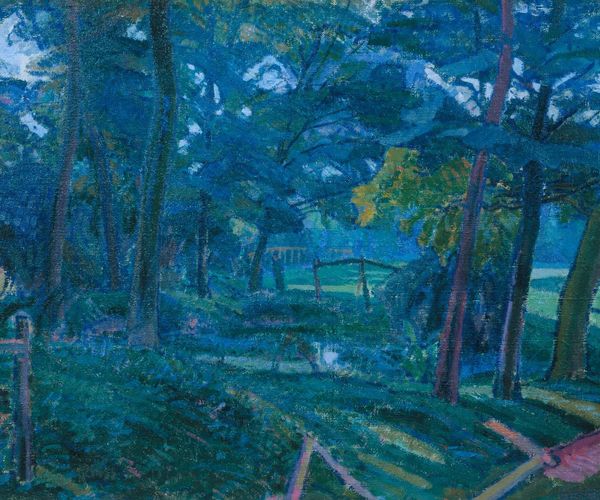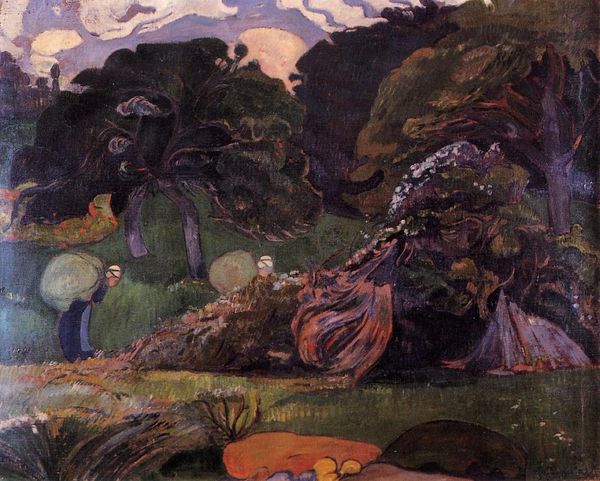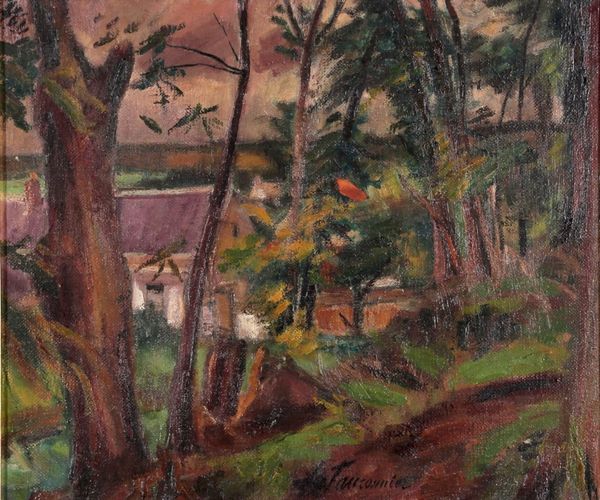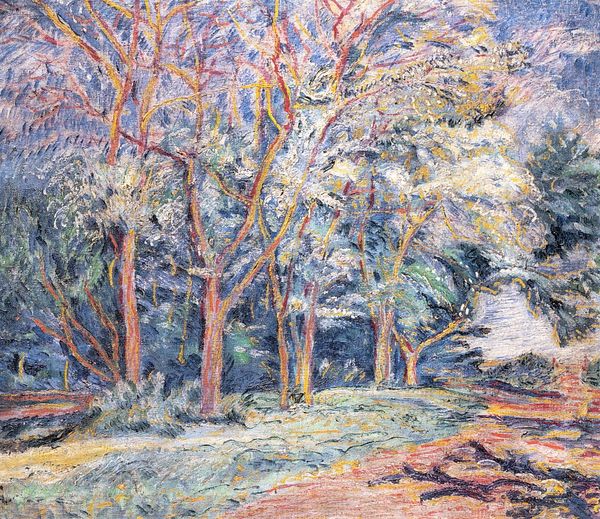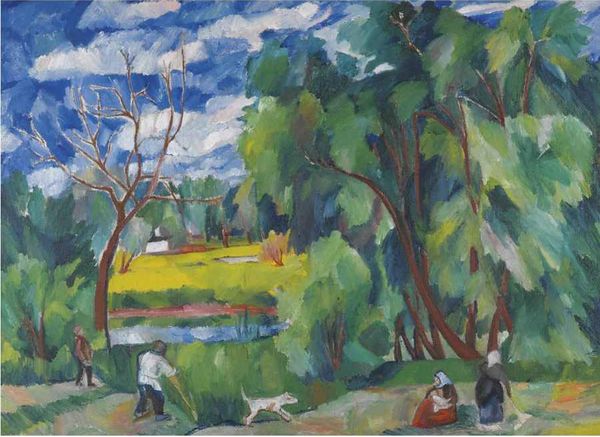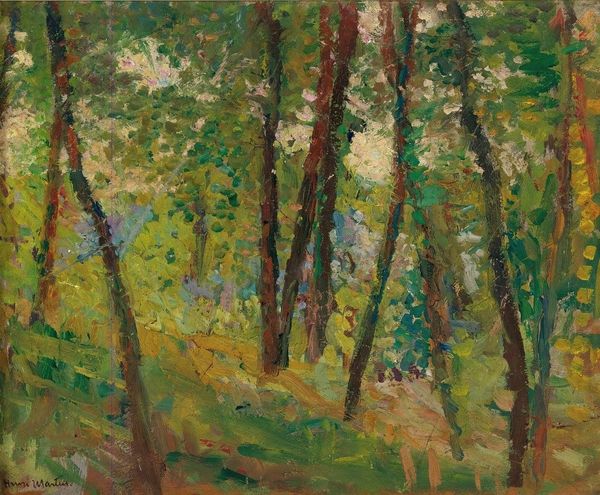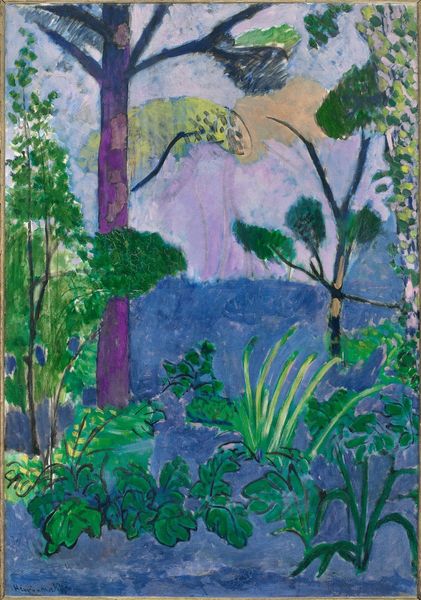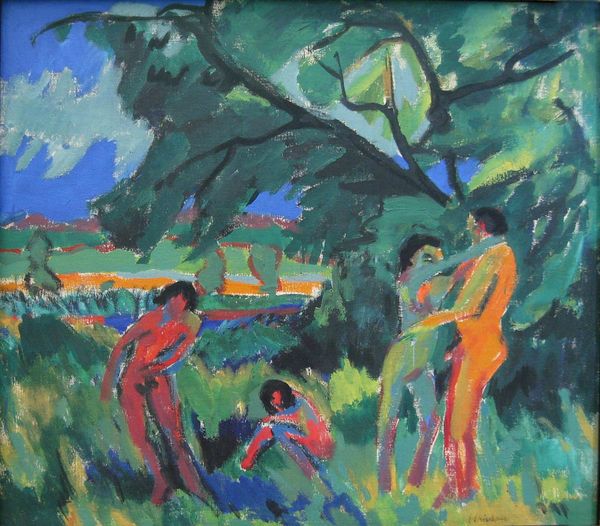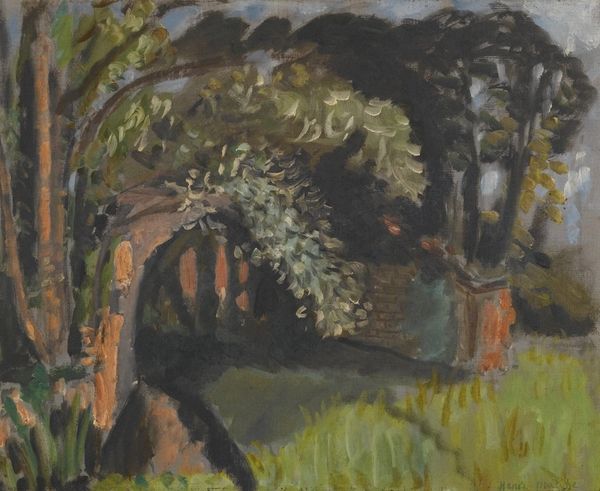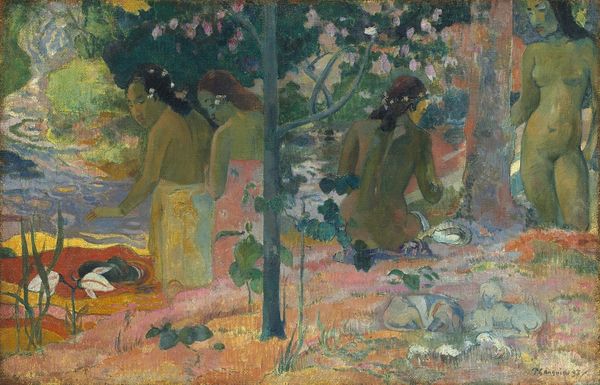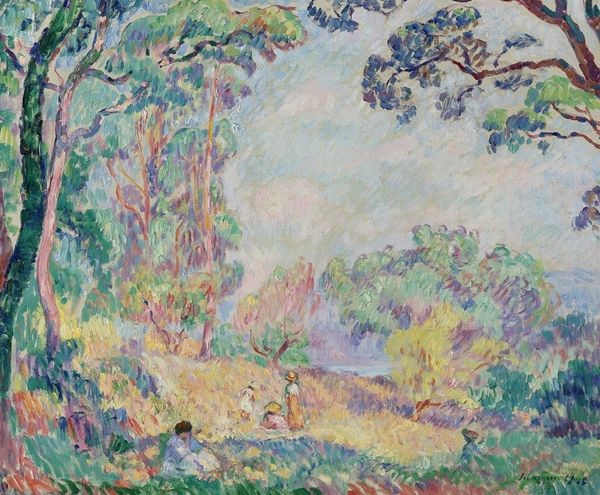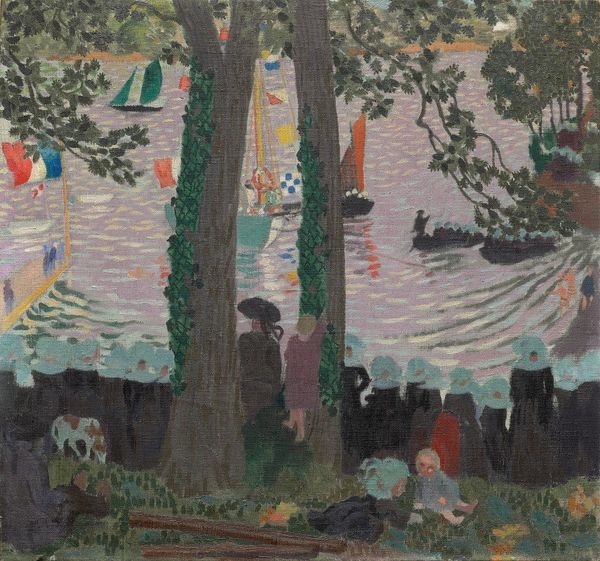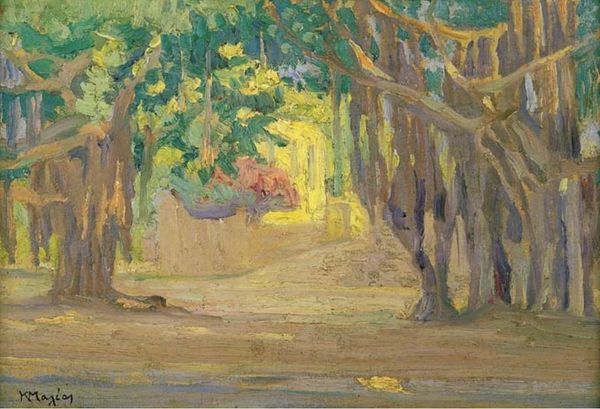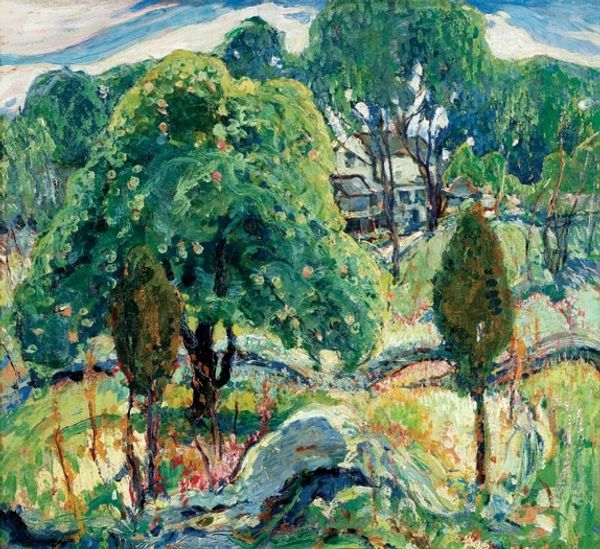
oil-paint
#
impressionist painting style
#
oil-paint
#
landscape
#
impressionist landscape
#
oil painting
#
naive art
#
symbolism
#
genre-painting
#
post-impressionism
Copyright: Public Domain: Artvee
Paul Gauguin likely painted *Te raau rahi* in the 1890s. The painting shows an orchard in Tahiti with people depicted in a flattened, non-naturalistic space. Gauguin’s use of color here is particularly striking. Note the contrast between the cool blues and greens in the foreground and the warmer reds and oranges in the background. These contrasting hues create a sense of depth, but also draw attention to the surface of the painting. Gauguin flattens the composition through the arrangement of forms; figures are outlined and simplified, reminiscent of cloisonnism. This flattening of perspective destabilizes traditional modes of representation. Gauguin's turn towards abstraction underscores a shift away from illusionism toward a more conceptual approach. The composition invites us to question the boundaries between representation and abstraction, and to explore how the visual elements function within Gauguin's broader artistic project.
Comments
No comments
Be the first to comment and join the conversation on the ultimate creative platform.
